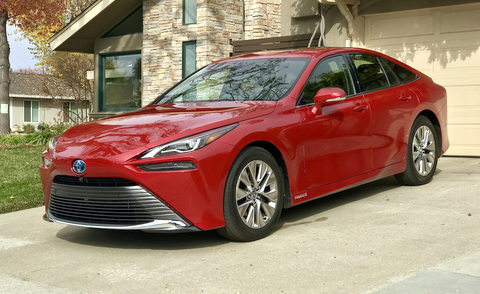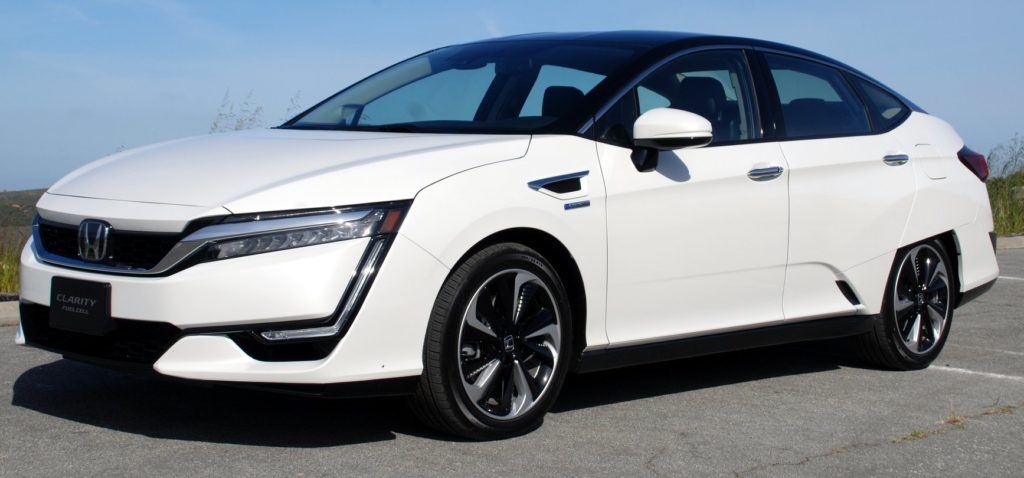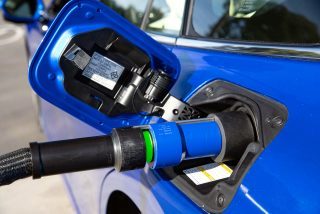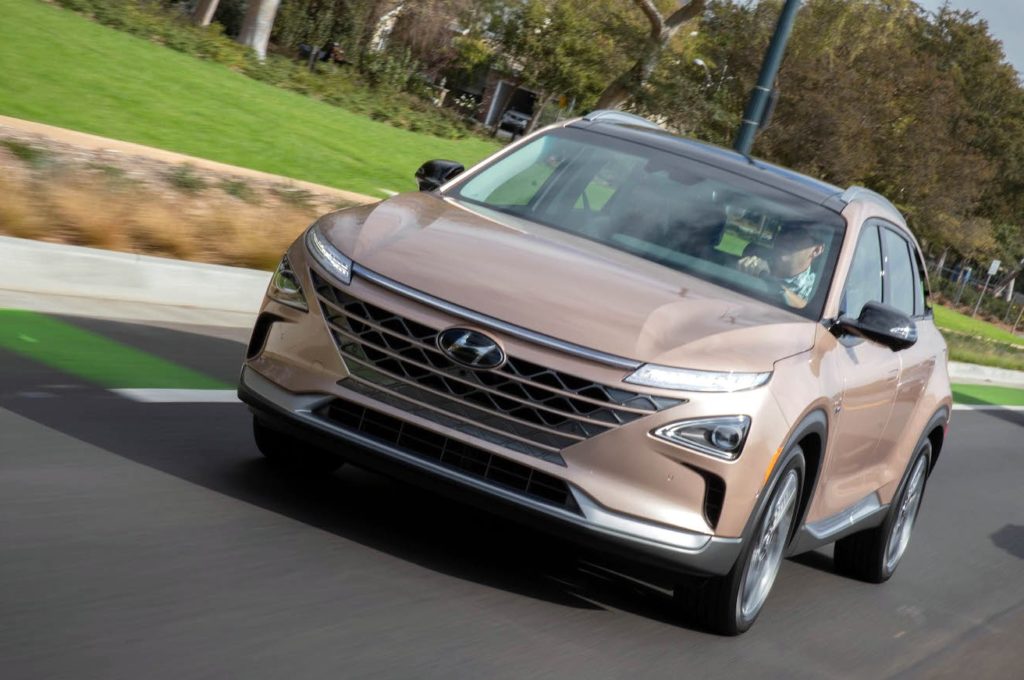The Other Zero Emission Vehicle
In the automotive industry, there have already been great strides in creating a greener future. Battery Electric Vehicles (BEVs) are already becoming more popular worldwide. They offer a way for motorists to keep their personal cars while doing less damage to the environment. There is another option, though, in hydrogen fuel cell vehicles. Are they the future of motoring?
How Hydrogen Can Power Cars

How does hydrogen work in the first place? When you switch on your hydrogen-fuelled car, it pumps hydrogen into one side of the fuel cell stack in your car, while oxygen taken in from the outside air on the other side of the stack. Hydrogen moves through the stack to the oxygen, and the fuel cell strips down the hydrogen molecules into protons and electrons and creates electricity. While the protons follow an internal circuit through the fuel stack, the electrons are put on an external circuit that provides electric power to the car.
Hydrogen fuelled cars have many similarities to BEVs that are on the road today. In fact, when BEVs were first being introduced, hydrogen powered cars were seen as not being far behind. Why is it that BEVs have become more popular?
Hydrogen Vs. Battery Powered Cars
BEVs offer advantages. They still have a long way to go before catching up on fossil fuel-powered cars in convenience of fueling. But more than five million plug in BEVs were sold globally by 2018. In comparison, only 7,500 hydrogen powered cars were sold by that time.

There are some advantages that a BEV has over a hydrogen fuel cell. As there are many more charging points out there compared to hydrogen fuelling stations, it’s much easier to charge the BEV on the go. Plus, plug in models allow you to charge the car while it’s parked at home.
But to charge a BEV takes time. It can take anything from between an hour and 12 hours to charge a BEV, depending upon the size of the battery and the speed of the charging point. Whereas hydrogen fuelled cars are much quicker to refuel. Hydrogen is pumped into the tank; you can pump the gaseous fuel in just as you would, well, regular gas for your car.
The Benefits of Hydrogen

Being able to quickly pump hydrogen gas into your car’s fuel tank is just one benefit of these cars. You’ll also see there’s an excellent environmental reason to drive them. When the hydrogen is converted to electricity, the only output the car will have is water vapour.
Hydrogen fuel will also give more range than a many fully charged BEVs. Many hydrogen cars, such as the Toyota Mirai, get up to 420 miles before it needs refuelling (and this week one unmodified Mirai set a record of 1000 kilometers—623 miles—on a single tank). Whereas an average fully charged BEV can only get up to 300 miles.
Why Hasn’t Hydrogen Power Taken Off?
If the hydrogen car has so many advantages, why hasn’t it become as big as the electric car? Mostly, it’s because the infrastructure just isn’t there for it. With only a few fuelling stations in the country, it’s just not practical to own one yet.
Plus, there are some fears over safety. Hydrogen has a reputation for being explosive. When hydrogen is mixed with air, it only needs a flame or a small amount of energy to explode. There was a reported instance of this occurring in Santa Clara at a Hydrogen production facility. When workers discovered a leak coming from a hydrogen tank, they rushed to try and contain it. When the explosion went off, the air pressure shook buildings within a five-mile radius.
Another incident occurred in Sandvika, Norway. When a hydrogen fuelling station set off an explosion near Oslo in June 2019, the Norwegian company ‘NEL’ were given fines for 25 million Norwegian krone ($3 million U.S. dollars). There were minor injuries in this incident, but that was only caused by the inflation of airbags in nearby vehicles.
Are Hydrogen Fuel Cell Cars The Future?

Should you expect to see hydrogen-powered cars on the market soon? There are some out there, such as the aforementioned Toyota Mirai, but right now there aren’t many. Advocates for the hydrogen car are hoping that the infrastructure will be put in for them soon, creating more choice for those in the market for an environmentally friendly car.
The hydrogen fuel cell car is something that has the potential to be an excellent alternative to the fossil fuel-powered cars we know now. If more support is put behind them, then they may well become another alternative, as well as the BEVs that are currently on the market.
Related Stories You Might Enjoy–Clean Fleet Report’s Fuel Cell Experience
Take Two: 2021 Toyota Mirai Fuel Cell Electric Vehicle
Flash Drive: 2021 Toyota Mirai Fuel Cell Electric Vehicle
Flash Drive/News: 2020 Hyundai Nexo FCEV
